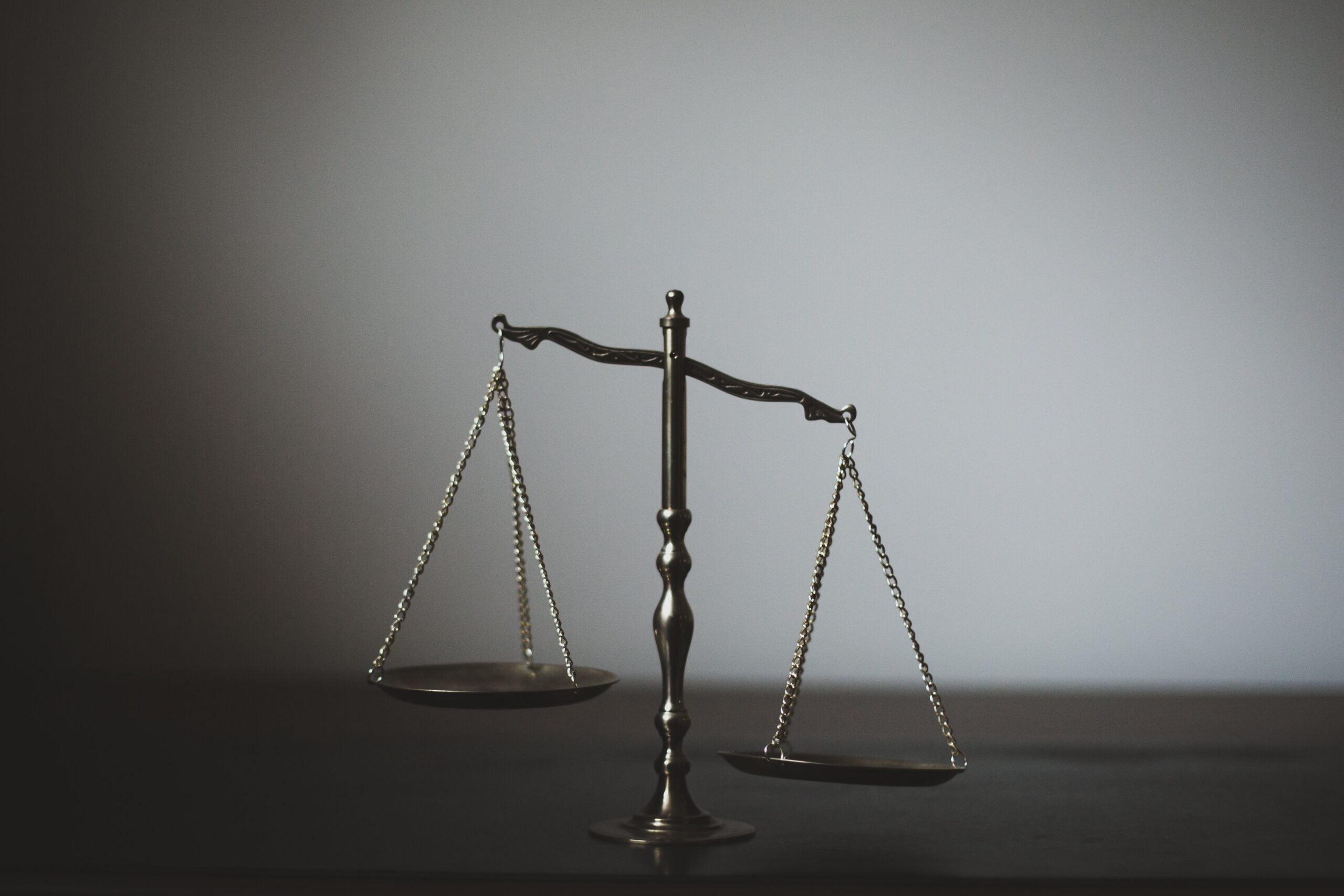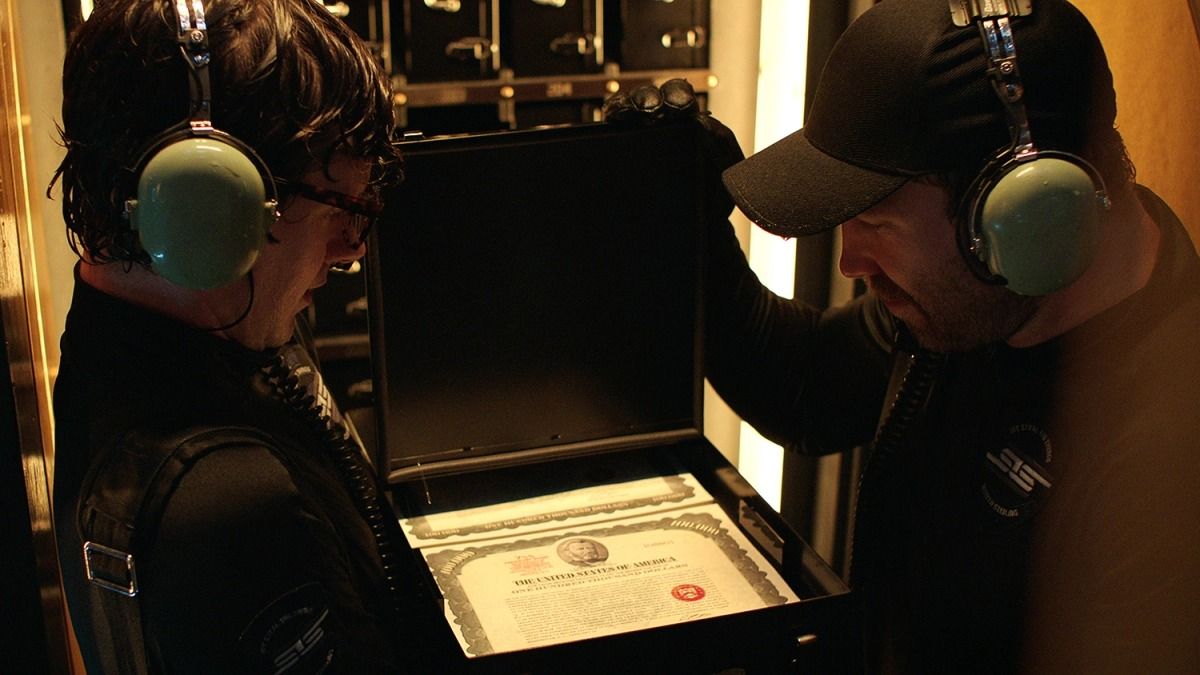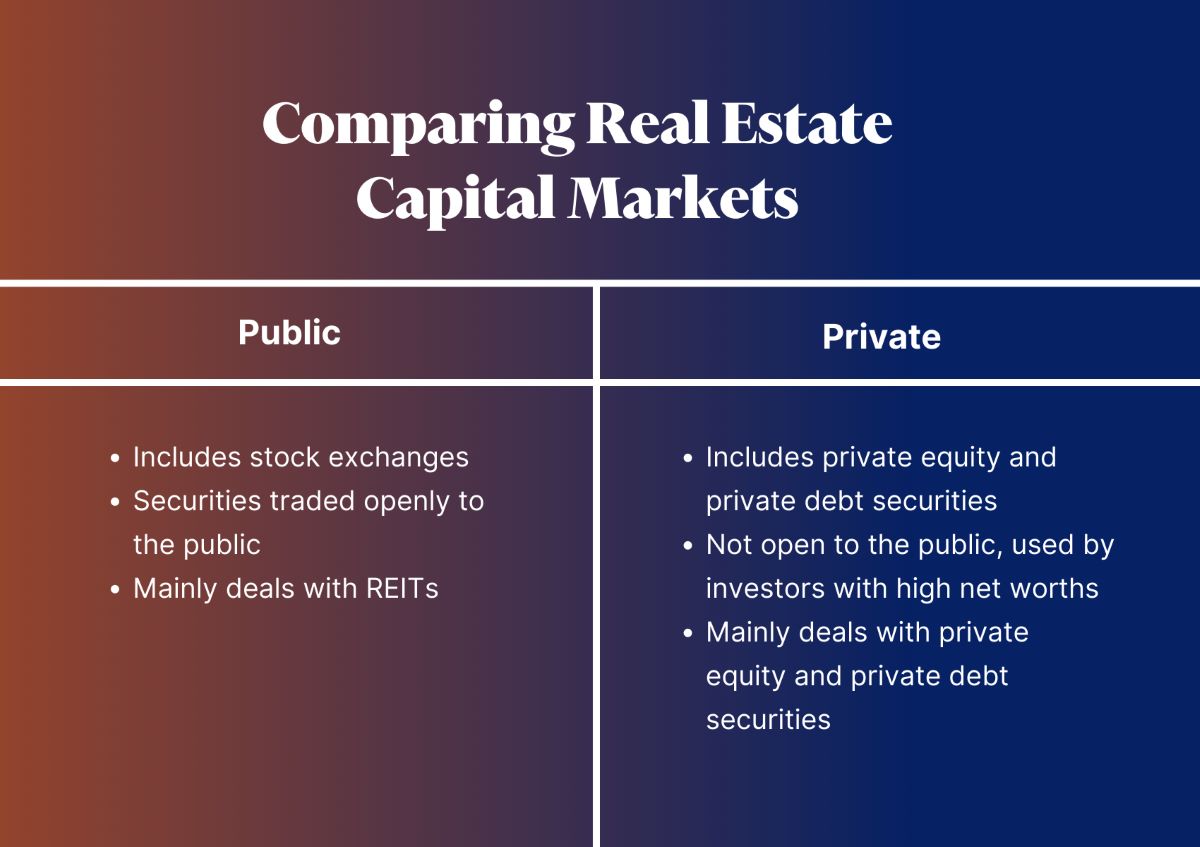Home>Finance>How Often Do Insurance Companies Use Private Investigators?


Finance
How Often Do Insurance Companies Use Private Investigators?
Published: November 10, 2023
Insurance companies occasionally hire private investigators in the finance industry to investigate potential fraud or other suspicious claims. Learn more about the frequency of these investigations and their role in insurance.
(Many of the links in this article redirect to a specific reviewed product. Your purchase of these products through affiliate links helps to generate commission for LiveWell, at no extra cost. Learn more)
Table of Contents
- Introduction
- Understanding Insurance Investigations
- The Role of Private Investigators in Insurance Claims
- Factors Influencing the Use of Private Investigators by Insurance Companies
- Common Reasons for Insurance Companies to Hire Private Investigators
- Examples of Insurance Fraud Cases Investigated by Private Investigators
- Legal and Ethical Considerations Surrounding the Use of Private Investigators
- The Effectiveness of Private Investigations in Insurance Claims
- Challenges and Limitations of Insurance Investigations Conducted by Private Investigators
- Conclusion
Introduction
Insurance plays a crucial role in our lives, providing financial protection and peace of mind in times of unforeseen events. However, the insurance industry is not without its challenges, one of which is insurance fraud. To combat fraudulent claims, insurance companies often resort to various investigative methods, one of which includes hiring private investigators.
In this article, we will delve into the world of insurance investigations and shed light on how insurance companies utilize private investigators to uncover fraudulent activities. We will explore the factors that influence the decision to hire private investigators, examine the effectiveness of these investigations, and consider the legal and ethical implications surrounding their use.
Insurance investigations are conducted to verify the legitimacy of insurance claims and to uncover any fraudulent activities. They are particularly prevalent in cases where there are suspicious circumstances or discrepancies in the claimant’s story. Private investigators play a crucial role in these investigations, using their expertise to gather evidence, interview witnesses, and analyze data to determine the veracity of the claim.
There are various factors that insurance companies consider when deciding whether or not to utilize the services of private investigators. The complexity and severity of the claim, the potential financial impact to the insurer, and the credibility of the claimant are some of the key factors that influence their decision. Additionally, the insurance company’s past experience with fraud and its overall commitment to combating fraudulent activities also play a role in the decision-making process.
Insurance fraud comes in many forms, ranging from exaggerating the extent of damage to property to staging accidents or even faking one’s own death. These fraudulent activities result in significant financial losses for insurance companies, which ultimately impact honest policyholders by driving up premiums. Private investigators are instrumental in uncovering such fraud, thereby protecting both insurance companies and policyholders from the detrimental effects of fraudulent claims.
In the following sections, we will delve into real-life examples of insurance fraud cases that have been successfully investigated by private investigators. We will also examine the legal and ethical considerations surrounding the use of private investigators in insurance investigations and discuss the challenges and limitations that they face in carrying out their work.
Overall, insurance investigations conducted by private investigators play a vital role in safeguarding the integrity of the insurance industry. By deterring and uncovering fraudulent activities, these investigations help maintain affordability and ensure that insurance remains a reliable and trustworthy mechanism for financial protection.
Understanding Insurance Investigations
Insurance investigations are an essential component of the insurance claims process. They involve the examination and verification of the information provided in an insurance claim to determine its legitimacy and accuracy. These investigations aim to protect the interests of both insurance companies and policyholders by ensuring that claims are valid and that fraudulent activities are identified and prevented.
Insurance investigations can take different forms depending on the nature of the claim and the potential risks involved. They may be conducted internally by the insurance company’s own claims team, or they may involve the hiring of external experts, such as private investigators, to gather additional evidence and insights.
During an insurance investigation, various sources of information are examined, including documents, photographs, medical records, and witness statements. Investigators also utilize surveillance techniques, such as video recording and photography, to gather evidence and uncover any discrepancies or fraudulent activities.
One of the primary objectives of an insurance investigation is to establish the cause and extent of damage or loss claimed by the policyholder. This may involve engaging professionals, such as engineers or medical experts, to assess the validity of the claim. Investigators analyze these findings and compare them with the information provided by the claimant to ensure consistency and accuracy.
Additionally, insurance investigations aim to verify the credibility and honesty of the claimant. Investigators may conduct interviews and background checks to delve into the claimant’s personal and financial history. Suspicious behaviors or inconsistencies in statements can raise red flags and warrant further investigation.
Insurance investigations are not limited to individual claims; they also play a critical role in identifying patterns of fraud within the insurance industry. By analyzing data and identifying trends, investigators can uncover organized fraud schemes and networks that target multiple insurance companies, helping to prevent future fraudulent activities.
Overall, insurance investigations are a complex and multifaceted process that requires meticulous attention to detail, extensive knowledge of insurance policies and regulations, and the expertise to gather and analyze evidence effectively. By conducting thorough investigations, insurance companies can protect their financial interests, maintain the trust of their policyholders, and deter fraudulent activities within the industry.
The Role of Private Investigators in Insurance Claims
Private investigators play a pivotal role in insurance claims by aiding insurance companies in uncovering fraudulent activities and verifying the legitimacy of claims. These skilled professionals bring a unique set of expertise and resources to the table, enabling them to conduct extensive investigations and gather crucial evidence.
One of the primary responsibilities of private investigators is to conduct thorough interviews with the claimant, witnesses, and relevant parties involved in the claim. By asking probing questions and carefully analyzing responses, investigators can uncover inconsistencies or discrepancies in the claimant’s story, which may indicate fraudulent activities.
Additionally, private investigators utilize various surveillance techniques to gather evidence and monitor the activities of the claimant. This can involve discreetly observing the claimant’s daily routines, tracking their movements, or using video and photographic evidence to document their actions. Surveillance can provide valuable insights into the claimant’s behavior, helping to determine the veracity of their claim.
Private investigators are also skilled at analyzing documentation and records related to the claim. They scrutinize medical records, accident reports, and financial documents to verify the accuracy of the information provided. Any inconsistencies or discrepancies uncovered during this process can help expose fraudulent activities.
In cases involving property damage claims, private investigators may employ experts and specialists, such as engineers or contractors, to assess the validity of the claim. These professionals can provide valuable insights into the cause and extent of the damage, helping to determine whether the claim is legitimate or fraudulent.
Furthermore, private investigators maintain strong relationships with law enforcement agencies and other legal professionals. This enables them to collaborate effectively with these entities during investigations involving criminal acts, such as staged accidents or arson. Their expertise in navigating the legal landscape ensures that the investigations are conducted in a lawful and ethical manner.
Ultimately, private investigators serve as a vital tool for insurance companies, providing them with the necessary expertise and resources to uncover fraudulent activities and protect their financial interests. By utilizing their skills in interviewing, surveillance, analysis, and collaboration, private investigators contribute to the overall integrity and reliability of the insurance claims process.
Factors Influencing the Use of Private Investigators by Insurance Companies
The decision to utilize the services of private investigators in insurance claims is influenced by various factors. Insurance companies carefully consider these factors to determine the necessity and potential benefits of conducting an investigation. Understanding these factors is essential in comprehending why and when insurance companies opt to hire private investigators.
1. Complexity and Severity of the Claim: Insurance companies often employ private investigators when dealing with complex or high-stakes claims. These may involve large financial payouts, questionable circumstances, or claims that deviate from the norm. By enlisting the expertise of private investigators, insurance companies ensure a thorough examination of the claim, allowing for a fair and accurate assessment.
2. Financial Impact: Insurance fraud can have significant financial implications for insurance companies and their policyholders. To mitigate potential losses, insurance companies may employ private investigators to detect and prevent fraudulent activities. By investing in investigations, insurance companies aim to protect their bottom line and maintain the financial stability of their operations.
3. Credibility of the Claimant: When insurance companies encounter claims with suspicious circumstances or inconsistencies, they often turn to private investigators to assess the credibility of the claimant. Private investigators use their skills in interviewing and background checks to uncover any potential red flags that may cast doubt on the validity of the claim. This helps insurance companies make informed decisions regarding the settlement of claims.
4. Experience with Fraud: Insurance companies with a history of dealing with fraudulent claims are more likely to utilize private investigators. These companies recognize the prevalence of insurance fraud and the impact it can have on their operations. By actively engaging private investigators, they demonstrate a commitment to combating fraud and sending a clear message that fraudulent activities will not be tolerated.
5. Legal and Regulatory Requirements: Insurance companies must adhere to legal and regulatory obligations when investigating claims. Private investigators are well-versed in these requirements, ensuring that the investigations are conducted within the bounds of the law. Compliance with legal and regulatory standards is crucial for insurance companies to protect themselves from potential lawsuits and maintain the integrity of their investigations.
6. Industry Best Practices: Insurance companies often follow industry best practices, which may include using private investigators during certain types of claims. By aligning with these practices, insurance companies can ensure consistency and standardization in their investigations. It also allows for benchmarking against industry peers, helping them stay at the forefront of fraud detection and prevention.
While these factors are influential, it’s important to note that the decision to hire private investigators varies on a case-by-case basis. Each claim presents its own unique circumstances, and insurance companies must weigh the costs and benefits of conducting an investigation before proceeding. By carefully considering these factors and making informed decisions, insurance companies can effectively combat fraud while maintaining the trust of their policyholders.
Common Reasons for Insurance Companies to Hire Private Investigators
Insurance companies hire private investigators for a variety of reasons, all aimed at ensuring the accuracy and validity of insurance claims. These investigative professionals play a crucial role in uncovering fraudulent activities, verifying the legitimacy of claims, and protecting the interests of both insurance companies and policyholders. Here are some common reasons why insurance companies choose to employ private investigators:
1. Suspected Fraud: One of the primary reasons insurance companies hire private investigators is to investigate claims that raise suspicion of fraud. Whether it is suspected staged accidents, exaggerated injuries, or falsified documentation, private investigators are skilled at gathering evidence and uncovering fraudulent activities. By detecting and preventing fraud, insurance companies can protect themselves from financial losses and maintain the integrity of the insurance system.
2. High-Value Claims: Insurance companies often enlist private investigators for claims involving significant financial stakes. These may include large property damage claims, complex personal injury cases, or claims related to highly valuable assets. By conducting thorough investigations, insurance companies can ensure that these high-value claims are legitimate and not subject to fraudulent exaggeration or misrepresentation.
3. Inconsistencies and Discrepancies: Insurance companies may hire private investigators when there are inconsistencies or discrepancies in the claimant’s account or supporting documentation. Private investigators are skilled at analyzing information, conducting interviews, and verifying the accuracy of claims. They can uncover any discrepancies in the claimant’s story or detect false information that may indicate fraudulent activities.
4. Verification of Loss or Damage: Private investigators play a crucial role in verifying the extent and cause of property damage or loss claimed by policyholders. They may engage experts such as engineers, appraisers, or forensic specialists to assess the validity of the claim. These experts provide insight into the cause, scope, and value of the loss, helping insurance companies make informed decisions regarding the settlement of claims.
5. Background Checks: Insurance companies often rely on private investigators to perform thorough background checks on claimants. These checks can uncover any previous fraudulent activities, criminal history, or inconsistencies in past insurance claims. By conducting comprehensive background checks, insurance companies can determine the credibility and trustworthiness of the claimant, enabling them to make accurate decisions about the claim.
6. Surveillance: Private investigators are skilled at conducting surveillance to gather evidence or monitor claimants’ activities. This can involve discreetly observing the claimant’s movements, using video and photographic evidence to document their actions, or tracking their online presence. Surveillance can provide valuable insights into the claimant’s behavior, helping to determine the veracity of their claim and uncovering any potential fraud.
Overall, hiring private investigators provides insurance companies with the necessary expertise and resources to combat fraud, protect their financial interests, and maintain the integrity of the insurance system. By uncovering fraudulent activities and verifying the legitimacy of claims, private investigators contribute to a fair and transparent insurance industry that benefits both insurance companies and policyholders alike.
Examples of Insurance Fraud Cases Investigated by Private Investigators
Private investigators have played a crucial role in uncovering numerous insurance fraud cases, exposing dishonest claimants and protecting the interests of insurance companies. These investigations have brought to light a wide range of fraudulent activities, from staged accidents to false injury claims. Let’s explore a few noteworthy examples of insurance fraud cases investigated by private investigators:
1. Staged Auto Accidents: Private investigators have been instrumental in identifying and proving cases of staged auto accidents. These incidents involve individuals intentionally causing collisions and then filing fraudulent insurance claims for damages and injuries. Through surveillance and careful investigation, private investigators gather evidence such as surveillance footage, witness statements, and accident report inconsistencies to expose these orchestrated accidents.
2. Slip and Fall Fraud: Private investigators have successfully exposed cases of fraudulent slip and fall claims. In these instances, individuals purposefully stage accidents in public places, such as grocery stores or restaurants, and then file false injury claims against the establishment’s insurance. Investigators use surveillance techniques, such as video footage analysis and witness interviews, to reveal the truth and prevent payouts for illegitimate claims.
3. Insurance Arson: Private investigators have been instrumental in uncovering cases of insurance arson, where individuals intentionally set fire to their own property to collect insurance money. Investigators work closely with fire departments and forensic experts to gather evidence, examine burn patterns, and interview witnesses to determine if the fire was deliberately started. These investigations play a crucial role in preventing fraudulent payouts.
4. Workers’ Compensation Fraud: Private investigators are frequently employed to investigate suspicious workers’ compensation claims. They examine the claimant’s activities and lifestyle, conduct interviews, and gather evidence to determine if the reported injury or disability is genuine. Investigators also analyze medical records and surveillance footage to identify any discrepancies that may indicate fraudulent claims.
5. Health Insurance Fraud: Private investigators play a vital role in uncovering healthcare provider fraud, such as medical professionals billing insurance companies for unnecessary procedures or services. Investigators use their expertise to examine medical records, cross-reference billing codes, and interview patients and staff to identify irregularities and discrepancies. These investigations protect insurance companies from fraudulent payouts and ensure that healthcare resources are allocated appropriately.
6. Life Insurance Fraud: Private investigators have been involved in cases of life insurance fraud, where beneficiaries falsify death certificates or other documents to collect insurance payouts. Investigators meticulously examine documents, conduct interviews, and collaborate with law enforcement agencies to verify the authenticity of death claims. By exposing such fraudulent activities, investigators protect the integrity of the life insurance industry.
These examples demonstrate the critical role that private investigators play in uncovering insurance fraud and protecting the interests of insurance companies and policyholders. By meticulously investigating suspicious claims, gathering evidence, and collaborating with various experts, private investigators contribute to a fair and transparent insurance system that benefits all stakeholders.
Legal and Ethical Considerations Surrounding the Use of Private Investigators
The use of private investigators in insurance investigations raises important legal and ethical considerations. While private investigators play a critical role in uncovering insurance fraud and protecting the interests of insurance companies, it is essential to ensure that their actions are conducted within the boundaries of the law and uphold ethical standards. Here are some key legal and ethical considerations surrounding the use of private investigators:
Legal Compliance: Private investigators must adhere to all applicable laws and regulations when conducting their investigations. They must obtain necessary licenses and certifications, and they must respect privacy laws, civil rights, and other legal requirements specific to the jurisdiction they operate in. Compliance with the law ensures that the evidence gathered is admissible and that insurance companies maintain their credibility and reputation.
Confidentiality: Private investigators must treat all gathered information and evidence with the utmost confidentiality. They should only disclose information on a need-to-know basis and ensure that sensitive data is securely stored. Respecting confidentiality is vital to protect the privacy of individuals involved in the investigation and maintain the trust of clients and stakeholders.
Invasion of Privacy: While private investigators have the authority to conduct surveillance and gather information, they must do so without unduly invading the privacy of individuals. They must be mindful of ethical boundaries, respect personal boundaries, and focus on obtaining relevant and necessary evidence. Ethical investigators prioritize the protection of individuals’ privacy rights while fulfilling their investigative duties.
Impartiality and Objectivity: Private investigators should maintain impartiality and objectivity throughout their investigations. They must approach each case without bias or preconceived notions, objectively examining evidence and conducting interviews. Ethical investigators prioritize the pursuit of truth and strive to present an accurate and unbiased representation of the facts to insurance companies.
Data Protection and Cybersecurity: In the digital age, private investigators must be well-versed in data protection and cybersecurity practices. They should securely store and transmit sensitive data, keep their systems updated to prevent unauthorized access, and safeguard against data breaches. Protecting the integrity and confidentiality of data is essential for maintaining trust and preventing potential harm to individuals involved in the investigation.
Respect for Professional Boundaries: Private investigators must establish and maintain clear boundaries when interacting with individuals during an investigation. They must not engage in any illegal or unethical activities themselves, such as harassment or coercion. Ethical investigators operate with professionalism and respect, treating all parties involved with dignity and fairness.
It is essential for insurance companies and private investigators to collaborate closely, ensuring that investigations are conducted within legal and ethical frameworks. Insurance companies should work with reputable and licensed investigators, establish clear guidelines and expectations, and regularly review and evaluate their investigative practices to ensure compliance with legal and ethical standards.
By upholding legal and ethical considerations, private investigators contribute to the integrity and reliability of insurance investigations. Their professionalism and adherence to these principles help maintain public trust in the insurance industry and ensure that justice is served while respecting the rights of all individuals involved.
The Effectiveness of Private Investigations in Insurance Claims
Private investigations play a crucial role in the insurance claims process, contributing to the overall effectiveness of the insurance industry. By utilizing the skills and resources of private investigators, insurance companies can improve the accuracy and efficiency of their claims assessments. Here are some key ways in which private investigations enhance the effectiveness of insurance claims:
1. Fraud Detection and Prevention: Private investigators are experts in uncovering insurance fraud, which is a significant threat to the industry. Their investigative techniques, such as surveillance, interviews, and evidence analysis, help identify suspicious activities and fraudulent claims. By detecting and preventing fraud, private investigations save insurance companies and policyholders from financial losses, ensuring that legitimate claims are recognized and fraudulent ones are rejected.
2. Thorough Evidence Gathering: Private investigators are skilled at gathering and analyzing evidence relevant to insurance claims. They can obtain witness statements, conduct interviews, review documents, and perform surveillance to gather crucial information. By ensuring comprehensive evidence collection, private investigations provide insurance companies with a thorough understanding of the claim, enabling accurate evaluations and fair settlements.
3. Verification of Claims: Private investigators play a vital role in verifying the legitimacy of insurance claims. They use their expertise to assess the credibility of claimants, review supporting documentation, and analyze the consistency of the reported information. Through background checks and surveillance, they can determine if the claimant’s activities align with the claimed injuries or damages. Such verification ensures that insurance companies make informed decisions based on reliable information.
4. Expert Collaboration: Private investigators often collaborate with a network of professionals, such as engineers, medical experts, and forensic specialists. These collaborations offer valuable insights into the cause, extent, and value of property damages, injuries, or other claim-related factors. By drawing on the expertise of these specialists, private investigations enhance the accuracy and reliability of claims evaluations, leading to fair settlements.
5. Protection of Policyholders and Insurers: Private investigations not only benefit insurance companies but also protect policyholders. By identifying and preventing fraudulent activities, private investigators help ensure that premiums remain affordable for honest policyholders. Additionally, investigations safeguard insurance companies’ financial stability, allowing them to continue providing reliable coverage and benefiting policyholders in times of need.
6. Deterrence Effect: The presence of private investigations acts as a deterrent to potential fraudsters. The knowledge that insurance companies employ expert investigators to scrutinize claims can discourage individuals from attempting fraudulent activities. The overall deterrence effect of private investigations contributes to maintaining the integrity of the insurance industry.
Overall, private investigations significantly enhance the effectiveness of insurance claims by identifying fraudulent activities, providing thorough evidence, verifying claims, collaborating with experts, protecting policyholders and insurance companies, and deterring fraudulent behavior. Through these investigations, insurance companies can accurately and efficiently assess claims, ensuring fair treatment for all parties involved.
Challenges and Limitations of Insurance Investigations Conducted by Private Investigators
While private investigators play a crucial role in insurance investigations, they face certain challenges and limitations that can impact the effectiveness of their work. It is essential to recognize these factors and understand the constraints that private investigators encounter. Here are some key challenges and limitations faced by private investigators conducting insurance investigations:
1. Limited Resources: Private investigators often face resource limitations, such as budget constraints or time limitations, imposed by insurance companies. These limitations can hinder the extent to which investigators can conduct comprehensive investigations. Limited resources may result in a narrower scope of work, potentially impacting the ability to gather extensive evidence or collaborate with additional specialists.
2. Privacy and Legal Considerations: Private investigators must navigate complex privacy and legal regulations when conducting investigations. They must ensure that their actions adhere to privacy laws and do not infringe on individuals’ rights. Striking the balance between gathering necessary evidence and respecting privacy rights can be challenging, particularly in cases where intrusive surveillance measures may be required.
3. Access to Information: Private investigators often encounter difficulties in accessing certain information for their investigations. This can be due to restricted public records, protected medical information, or limited cooperation from individuals involved in the claim. Access issues can impede the ability of investigators to gather critical evidence or verify the accuracy of claims thoroughly.
4. Dealing with Uncooperative Individuals: Some individuals involved in insurance claims may be uncooperative or reluctant to provide the necessary information. This may include claimants, witnesses, or even third-party individuals. Persuading uncooperative individuals to participate in interviews or provide relevant information can present challenges and may require creative approaches or legal interventions.
5. Complexity and Sophistication of Fraud: Insurance fraudsters can be highly sophisticated, using various methods to cover their tracks and deceive investigators. They may employ cutting-edge technologies, create false identities, or engage in elaborate schemes that are challenging to uncover. The complex nature of fraud requires investigators to stay updated with evolving techniques and continually enhance their investigative skills.
6. Geographical Limitations: Insurance investigations may involve claims in different geographical locations, possibly requiring investigators to work within unfamiliar jurisdictions. Each jurisdiction may have its own legal, cultural, and logistical challenges that investigators must navigate. Adapting to different legal systems, cultural norms, and logistical considerations can add complexity and time to the investigative process.
7. Ethical Dilemmas: Private investigators must wrestle with ethical considerations when conducting investigations. They must remain committed to maintaining objectivity, avoiding conflicts of interest, and acting in the best interest of justice. Balancing the pursuit of truth with privacy rights and ethical principles can be challenging, requiring investigators to make difficult decisions in the course of their work.
It is essential for insurance companies and private investigators to address these challenges and limitations proactively. By providing adequate resources, addressing legal and ethical considerations, and facilitating cooperation between all parties involved, insurance investigations can overcome these challenges and strive for more effective outcomes.
Conclusion
Private investigators play a vital role in insurance investigations, helping insurance companies uncover fraudulent activities, verify the legitimacy of claims, and protect the interests of both insurers and policyholders. Through their skills in evidence gathering, interview techniques, and collaboration with experts, private investigators enhance the effectiveness and integrity of the insurance claims process.
By detecting and preventing insurance fraud, private investigations save insurance companies significant financial losses and help maintain affordable premiums for honest policyholders. These investigations also safeguard the financial stability of insurance companies, ensuring that they can continue to provide reliable coverage and support to their policyholders.
However, private investigators face challenges and limitations in conducting insurance investigations, such as limited resources, privacy concerns, access to information, dealing with uncooperative individuals, and the complexity of fraud. Overcoming these obstacles requires collaboration between insurance companies and investigators, adequate resource allocation, adherence to legal and ethical principles, and ongoing skill development.
Despite these challenges, private investigations remain a crucial component of the insurance industry, serving as a deterrent to potential fraudsters and maintaining the overall integrity of the system. The expertise, skills, and determination of private investigators contribute to the fair evaluation of insurance claims, ensuring that legitimate claims are recognized and fraudulent ones are rejected.
In conclusion, private investigations are essential for insurance companies to protect themselves and policyholders from insurance fraud. By upholding legal and ethical standards, addressing challenges, and utilizing their expertise in evidence collection and analysis, private investigators play a critical role in maintaining the trust, integrity, and effectiveness of the insurance claims process. Through their diligence and professionalism, private investigators help create a fair and transparent insurance industry that benefits both insurers and policyholders.














